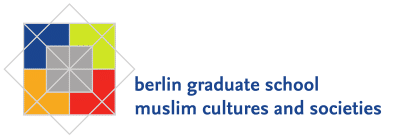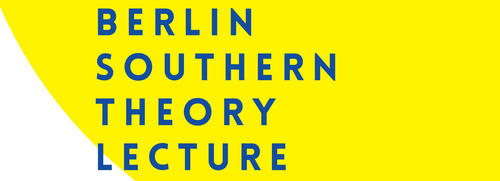Leberecht Funk

Affiliated to Research Area Anthropology of Emotions
Leberecht Funk got his PhD in Social and Cultural Anthropology on 27th September 2019.
Academic Positions
Since 02/2017
Project team member in the research area „Anthropology of Emotion“, Institute of Social and Cultural Anthropology, Freie Universität Berlin
10/2015 – 01/2017
Doctoral Scholarship from the Cluster Languages of Emotion, Freie Universität Berlin
04/2014 - 09/2015
Research Associate at the Institute of Social and Cultural Anthropology (IfE), Freie Universität Berlin
09/2009 - 10/2013
Research Associate in the Project „Socialisation and Ontogeny of Emotions in Cross-Cultural Perspective“ (PI: Prof. B. Röttger-Rössler), Cluster Languages of Emotion, Freie Universität Berlin
02/2007 – 02/2009
Research Associate at the Museum für Völkerkunde Dresden in the department of East Asia
Academic Qualifications
09/2019
PhD in Social and Cultural Anthropology, FU Berlin (Diss. on "Society, Cosmology, and Socialization of Emotions" (Supervisor: Prof. Dr. Birgitt Röttger-Rössler)
10/2005
M.A. in Social and Cultural Anthropology, Freie Universität Berlin. Minor subjects: Sinology (Freie Universität Berlin) and European Ethnology (Humboldt-Universität zu Berlin)
Memberships
- Deutsche Gesellschaft für Sozial- und Kulturanthropologie (DGSKA)
- European Association of Social Anthropologists (EASA)
- Foundation member of the working group „Psychological Anthropology“ at the DGSKA
- Working group „Cognitive and linguistic anthropology“ at the DGSKA
Summer Term 2015
(with Birgitt Röttger-Rössler) Institute of Social and Cultural Anthropology, BA & MA Level: Perspectives on Childhood from Social Anthropology and Cultural Psychology (Social and Cultural Anthropological Colloquium)Winter Term 2014/2015
Institute of Social and Cultural Anthropology, MA Level: (New) Kinship StudiesInstitute of Social and Cultural Anthropology, BA Level: Introduction to Social and Cultural Anthropology
Summer Term 2014
Institute of Social and Cultural Anthropology, BA Level: Childhood in ChinaSummer Term 2013
Institute of Social and Cultural Anthropology, BA Level: Experiences as „Self“ and Ideas of the „Person“Summer Term 2012
(with Susanne Jung) Institute of Social and Cultural Anthropology, BA Level: Childhood and Socialization in Cross-Cultural ComparisonDoctoral Research
Society, Cosmology, and Socialization of Emotion among the Tao in Taiwan
Research project
My doctoral dissertation emerges from the bi-disciplinary research project “Socialization and Ontogeny of Emotions in Cross-Cultural Perspective” (2009-2014) which was located at the cluster “Languages of Emotion” at the FU Berlin and lead by Prof. Dr. Birgitt Röttger-Rössler from the FU Berlin (social and cultural anthropology) and Manfred Holodynski from the University of Münster (developmental psychology). Research was carried out in three different field sites: Among the Minangkabao in Indonesia (Susanne Jung), among the Bara in Madagascar (Gabriel Scheidecker) and among the Tao on the Taiwanese island of Lanyu (Leberecht Funk). Central research questions were formulated from the joint theoretical perspective of our project:
- What are the culturally approved display rules of emotional expression in Tao society?
- What is the local meaning of emotion words?
- How do Tao children learn the emotional repertoire of their society?
- How do caretakers make use of emotionally arousing socialization practices?
- Which emotions play a leading role in the process of socialization?
- How do emotions develop in the course of ontogeny and how do they influence each other?
The Tao people
The Tao are a group of approx. 4.500 people who share close cultural affinities with the northernmost inhabitants of the Philippines. Tao society consists of hierarchically organized bilateral kinship groups whose boundaries cannot be sharply distinguished. The hierarchical element is balanced by an egalitarian ethos that is especially strong among „siblings“. The Tao have a dual world view: Humans and spiritual beings live in co-existing worlds that need to be kept apart in order to avoid harm for the „bodily self“ (kataotao). People are surrounded by malicious Anito spirits who are able to overhear human conversation and try to snach the „souls“ (pahad) of the weak (especially young children).
Field experience
Between 2010 – 2011 I spend 13 months in a Tao village. I soon realized that the answers for the above mentioned questions can only be satisfactorily given if I understood the dynamics of society and explored the Tao’s cultural models of person, emotion, and development. By taking an holistic approach I was able to draw connections between society, cosmology, emotions, and the life course.
Methods
Concepts and methods from social and cultural anthropology and developmental psychology were combined within a mixed method approach. I started my research activity with a survey about the meaning of emotion terms in the local language cirisiring no tao. Throughout my field stay I conducted interviews about socialization practices, educational methods, and children’s memories of educational experiences. Systematical recordings of emotional episodes between children and care-givers and among children enabled me to document and analyze non-verbal patterns of emotional behavior. My research benefitted greatly from the help of my field assistents Xie Laiyu and Huang Yingzhen.
Some results
From late infancy onwards until about the age of 3,5 Tao children are constantly teased by their care-givers. From the Tao’s perspective these kind of treatments are necessary to harden children’s „souls“ in order to make them less vulnerable to the attacks of Anito spirits. The only way for Tao children to end teasing is to stay „calm“ (mahanang) and „avoid eye contact“ (jiozayan). Early childhood experiences of Tao children lead to an „anxiety and shame disposition“ (kanig) that has to be successively overcome in later stages of the life cycle.
Timetable
The dissertation was handed in in April 2019.
Field Research
02/2019
Alishan, Taiwan
10/2010 – 08/2011
Lanyu, Taiwan
01 – 02/2010
Lanyu, Taiwan
Object Research
02/2007 – 03/2009
East Asian Collections at the Museum für Völkerkunde Dresden and the GRASSI Museums für Völkerkunde zu Leipzig
Research Interests
Regional
- East Asia (especiallyTaiwan)
- Southeast Asia
- Europe
Thematic
- Emotion and affect
- Childhood and socialization
- Personhood
- Relationships between people and their environment
- Animism
- Social Relations
- Interdisciplinary research
- Cultural comparison
- Object research and material culture
- Monster Studies
Content:
- Publications
- Talks and Papers
Publications
(in print)
(mit Ferdiansyah Thajib) Intimacy and Care. In: Stodulka, Thomas, Dinkelaker, Samia & Ferdiansyah Thajib (eds.): Affective Dimensions of Fieldwork and Ethnography. New York: Springer.
(in preparation)
Bringing my wife and children to the field: methodological, epistomological, and ethical reflections. In: Braukmann, Fabienne, Haug, Michaela, Metzmacher, Katja & Rosalie Stolz (eds.): Being a parent in the field: implications and challenges of accompanied fieldwork. Transcript: Bielefeld.
2015
(with Martin Voss) Participative Vulnerability and Resilience Assessment and the Example of the Tao People (Taiwan). In: Krüger, Fred, Bankoff, Greg, Cannon, Terry & Lisa Shipper (eds.): Cultures and Disasters. Understanding Cultural Framings in Disaster Risk Reduction. Routledge, 255-276.
2015
(with Birgitt Röttger-Rössler, Gabriel Scheidecker & Manfred Holodynski) Learning (by) feeling: A Cross-Cultural Comparison of Socialization and Development of Emotions. In: Ethos 43 (2): S. 187-220.
2014
Entanglements between Tao People and Anito on Lanyu Island, Taiwan. In: Musharbash, Yasmine & Geir-Henning Presterudstuen (eds.): Monsters and Anthropology in Australasia and Beyond. New York: Palgrave Macmillan, S. 143-157.
2012
Fühlen(d) lernen: Zur Sozialisation und Entwicklung von Emotionen im Kulturvergleich. In: Zeitschrift für Erziehungswissenschaften 15: S. 217–238. DOI 10.1007/s11618-012-0302-z. Artikel lesen [pdf]
2010
’Halte den Sarg bereit, und der Mann wird nicht sterben’ – Der chinesische ‚Langlebigkeitssarg’ des Völkerkundemuseums zu Leipzig. In: Jahrbuch der Staatlichen Ethnographischen Sammlungen Sachsen 45: S. 269 – 288.
2009a
’Kindespietät’ und ‚langes Leben’ in China. In: Carolin Kollewe & Karsten Jahnke (eds.), FaltenReich - Vom Älterwerden in der Welt. Leipzig: Völkerkundemuseum, S. 88-93.
2009b
Yaotoufo [Wackelpagode]. In: Bai ying zhi guang. Sakesen - bolan gongting wenwu jingpin ji (1670 - 1763 nian) [Im Zeichen des weißen Adlers. Höfische Kunst aus Sachsen-Polen (1670-1763)],Beijing: Zijincheng chubanshe [The Forbidden City Publishing House]. S. 74.
2009c
Ein formaler Vergleich der institutionalisierten Geschlechterbeziehungen bei den Moso (China) und den Nayar (Indien). Eine Antwort auf Roland Hardenberg. In: Paideuma 55: S. 221-240. Artikel lesen: [pdf]
2008a
Wackelpagode. In: Cordula Bischoff (ed.): Goldener Drache, Weißer Adler: Kunst im Dienste der Macht am Kaiserhof von China und am sächsisch-polnischen Hof (1644 – 1795); [anlässlich der Ausstellung Goldener Drache – Weißer Adler. Kunst im Dienste der Macht am Kaiserhof von China und am Sächsisch-Polnischen Hof (1644 – 1795), Staatliche Kunstsammlungen Dresen, Residenzschloss, 11.10.2008 – 11.01.2009], S. 73-74.
2008b
Mandschurisches Generalsgewand. In: Cordula Bischoff (ed.): Goldener Drache, Weißer Adler: Kunst im Dienste der Macht am Kaiserhof von China und am sächsisch-polnischen Hof (1644 – 1795);[anlässlich derAusstellung Goldener Drache – Weißer Adler. Kunst im Dienste der Macht amKaiserhof vonChina und am Sächsisch-Polnischen Hof (1644 – 1795), StaatlicheKunstsammlungen Dresen,Residenzschloss, 11.10.2008 – 11.01.2009], S. 184.
2008c
Damenschuhe für Lotosfüße. In: Cordula Bischoff (ed.): Goldener Drache, Weißer Adler: Kunst im Dienste der Macht am Kaiserhof von China und am sächsisch-polnischen Hof (1644 – 1795);[anlässlich derAusstellung Goldener Drache – Weißer Adler. Kunst im Dienste der Macht amKaiserhof vonChina und am Sächsisch-Polnischen Hof (1644 – 1795), StaatlicheKunstsammlungen Dresen,Residenzschloss, 11.10.2008 – 11.01.2009], S. 294.
2008d
Drei Specksteinfiguren. In: Cordula Bischoff (ed.): Goldener Drache, Weißer Adler: Kunst im Dienste der Macht am Kaiserhof von China und am sächsisch-polnischen Hof (1644 – 1795); [anlässlich der Ausstellung Goldener Drache – Weißer Adler. Kunst im Dienste der Macht am Kaiserhof von China und am Sächsisch-Polnischen Hof (1644 – 1795), Staatliche Kunstsammlungen Dresen, Residenzschloss, 11.10.2008 – 11.01.2009], S. 312.
2008e
Deckeldose. In: Cordula Bischoff (ed.): Goldener Drache, Weißer Adler: Kunst im Dienste der Macht am Kaiserhof von China und am sächsisch-polnischen Hof (1644 – 1795); [anlässlich der Ausstellung Goldener Drache – Weißer Adler. Kunst im Dienste der Macht am Kaiserhof von China und am Sächsisch-Polnischen Hof (1644 – 1795), Staatliche Kunstsammlungen Dresen, Residenzschloss, 11.10.2008 – 11.01.2009], S. 329.
Talks & Papers
2018
Praising children as a cultural challenge – conflicting pedagogies in a Taiwanese minoritarian setting. Konferenz: European Association of Social Anthropologists (EASA), Stockholm, Schweden.
2018
„Sichtbares und Unsichtbares bei den Tao in Taiwan. Interimstagung der Arbeitsgruppe Südostasien der DGSKA, Institut für Ethnologie, Universität Heidelberg.“
2018
Mit eigenen Kindern im Feld: Methodische, epistemologische und ethische Reflexionen. Workshop: Feldforschung und Familie: Herausforderungen des Elternseins im Feld, Universität zu Köln.
2017
How monsters come into existence: Socialization practices, moral affects, and Anito spirits among the Tao in Taiwan. Anthropology Symposium: Living with Monsters, University of Sydney, Australien.
2017
Affective practices, morality, and „caring“ for the elderly in Tao society. Gründungsveranstaltung der AG Psychologische Anthropologie, DGSKA-Konferenz Berlin.
2015
Seelenvorstellungen und Sozialisation von Emotionen bei den Tao (Taiwan). Sozial- und Kulturanthropologisches Colloquium, Institut für Ethnologie, Freie Universität Berlin.
2013
Angst vor bösartigen Geistwesen bei den Tao in Taiwan. Anthropologie der Emotionen, Langen Nacht der Wissenschaften, Freie Universität Berlin.
2012
Socialization of “anxiety” and “shame” among the Tao (Taiwan). 21st Congress of the International Association of Cross-Cultural Psychology (IACCP), Stellenbosch, Südafrika.
2012
Kulturelle Modelle von “Katastrophe” und Emotionsregulation bei den Tao (Taiwan). Sozialanthropologisches Colloquium „Zum Umgang mit Unglück, Leid und Katastrophen“, Institut für Ethnologie, Freie Universität Berlin.
2011
(with Susanne Jung) Mit Kindern im Feld: Zur Sozialisation von Emotionen bei Tao und Minangkabao. Sozialanthropologisches Colloquium, Institut für Ethnologie, Freie Universität Berlin.
2011
Feldforschung unter Geistern: methodische Zugänge bei den Tao. Workshop: Ontogenese von Emotionen im Kulturvergleich: Methodische Zugänge, Cluster Languages of Emotion, Freie Universität Berlin.
2009
Führungen durch den chinesischen Teil der Ausstellung FaltenReich. GRASSI Museum für Völkerkunde zu Leipzig.
2008
Der chinesische Wunsch nach Langlebigkeit. Vortragsreihe Kultur am Mittag, Museum für Völkerkunde Dresden.
2008
Kindespietät in China – Vom Umgang mit den Eltern. Seniorenakademie, Museum für Völkerkunde Dresden.


